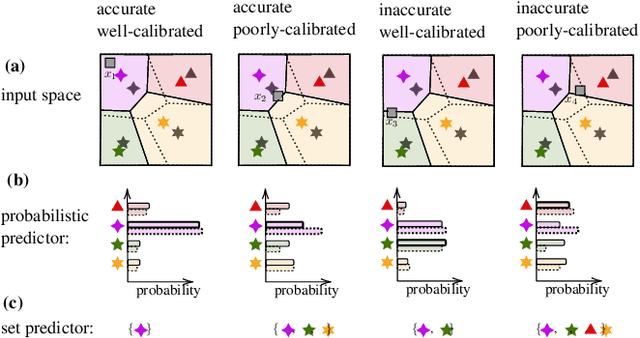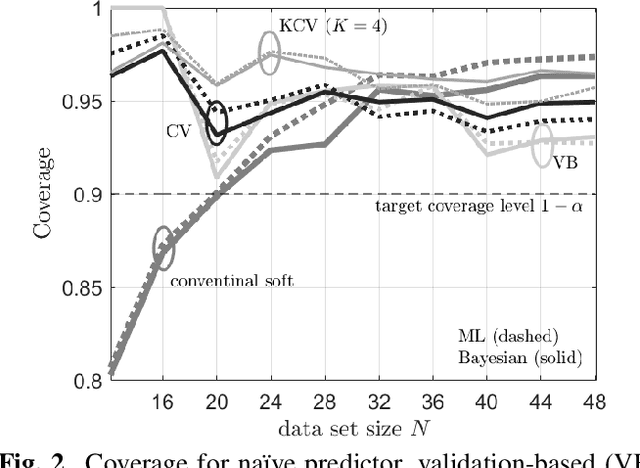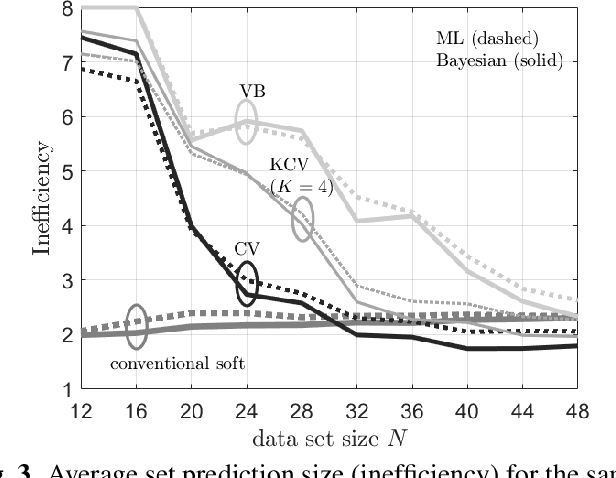Calibrating AI Models for Few-Shot Demodulation via Conformal Prediction
Paper and Code
Oct 10, 2022


AI tools can be useful to address model deficits in the design of communication systems. However, conventional learning-based AI algorithms yield poorly calibrated decisions, unabling to quantify their outputs uncertainty. While Bayesian learning can enhance calibration by capturing epistemic uncertainty caused by limited data availability, formal calibration guarantees only hold under strong assumptions about the ground-truth, unknown, data generation mechanism. We propose to leverage the conformal prediction framework to obtain data-driven set predictions whose calibration properties hold irrespective of the data distribution. Specifically, we investigate the design of baseband demodulators in the presence of hard-to-model nonlinearities such as hardware imperfections, and propose set-based demodulators based on conformal prediction. Numerical results confirm the theoretical validity of the proposed demodulators, and bring insights into their average prediction set size efficiency.
 Add to Chrome
Add to Chrome Add to Firefox
Add to Firefox Add to Edge
Add to Edge